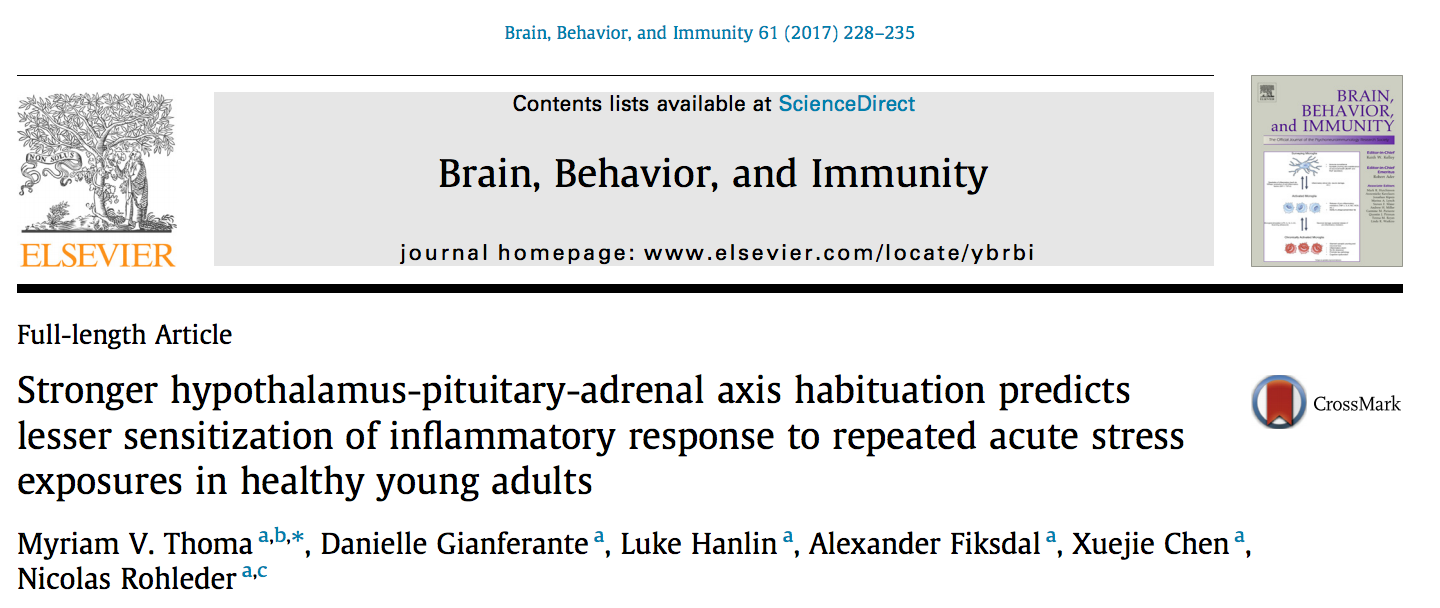New Paper: Stronger hypothalamus-pituitary-adrenal axis habituation predicts lesser sensitization of inflammatory response to repeated acute stress exposures in healthy young adults
In this new paper, published in Brain, Behavior and Immunity, and first authored by our former Postdoc Dr. Myriam Thoma, University of Zurich, Switzerland, we investigated the relationship of HPA axis and inflammatory responses to repeated acute stress in humans.
Based on the fact that HPA axis responses to stress have been shown to habituate in more than 70 percent of people exposed to repeated stress, but plasma inflammatory responses do not show habituation in most people, we set out to better understand this discordant response pattern.
Results showed that sensitization of the inflammatory system to repeated stress was stronger in those people who showed lesser HPA axis habituation. In other words, those people who showed a response pattern seen as „maladaptive“ in the HPA axis (i.e. non-habituation) also showed a potentially „maladaptive“ pattern in their plasma inflammatory response characterized by stronger sensitization, and higher inflammatory response to repeated stress.
Taken together these findings show that although response patterns of both systems are discordant in that one habituates and the other does not, there is a positive relationship between both systems in that a person tends to either show more or less maladaptive pattern in both systems.
